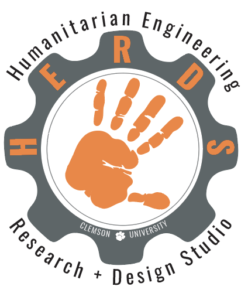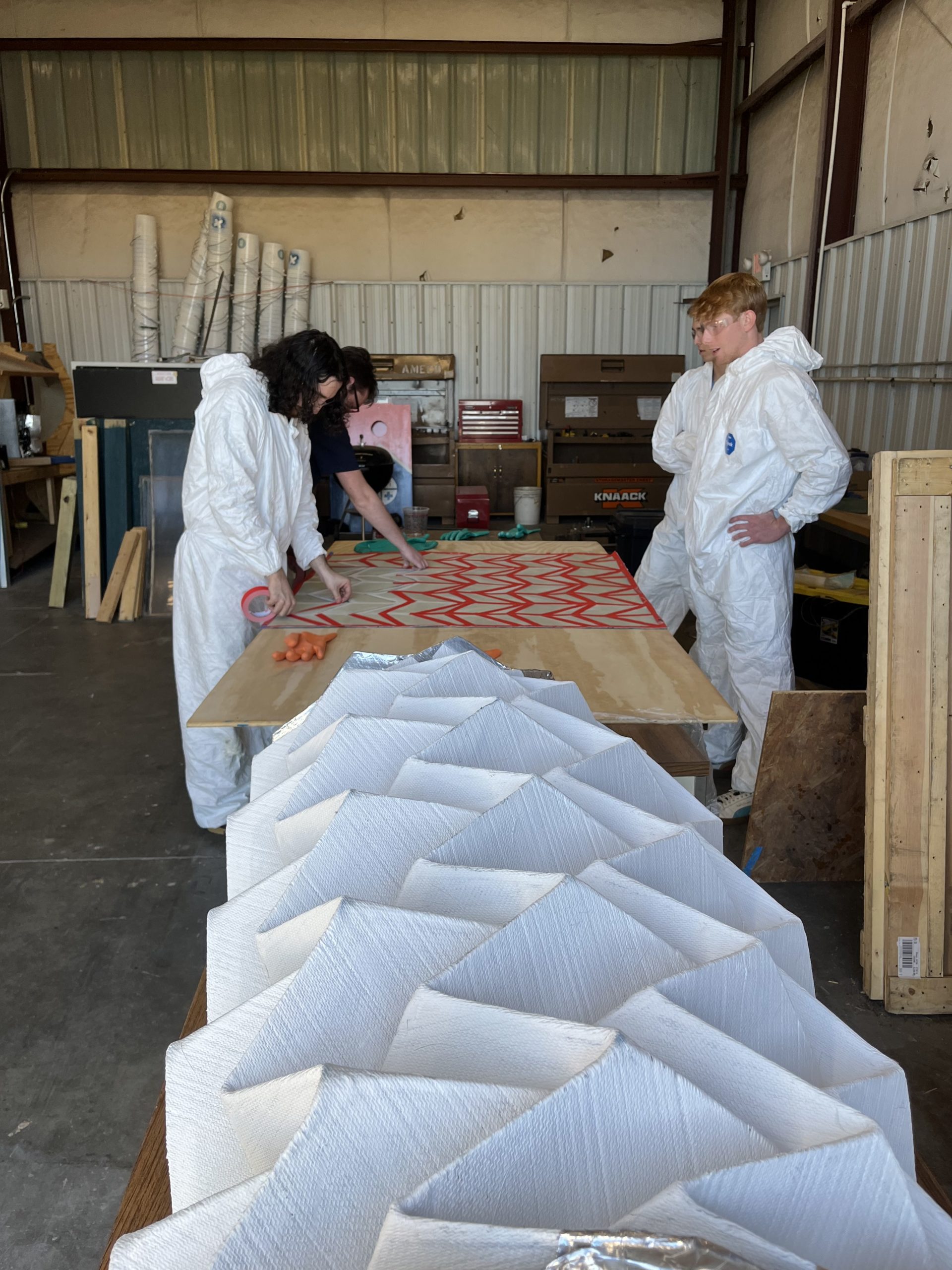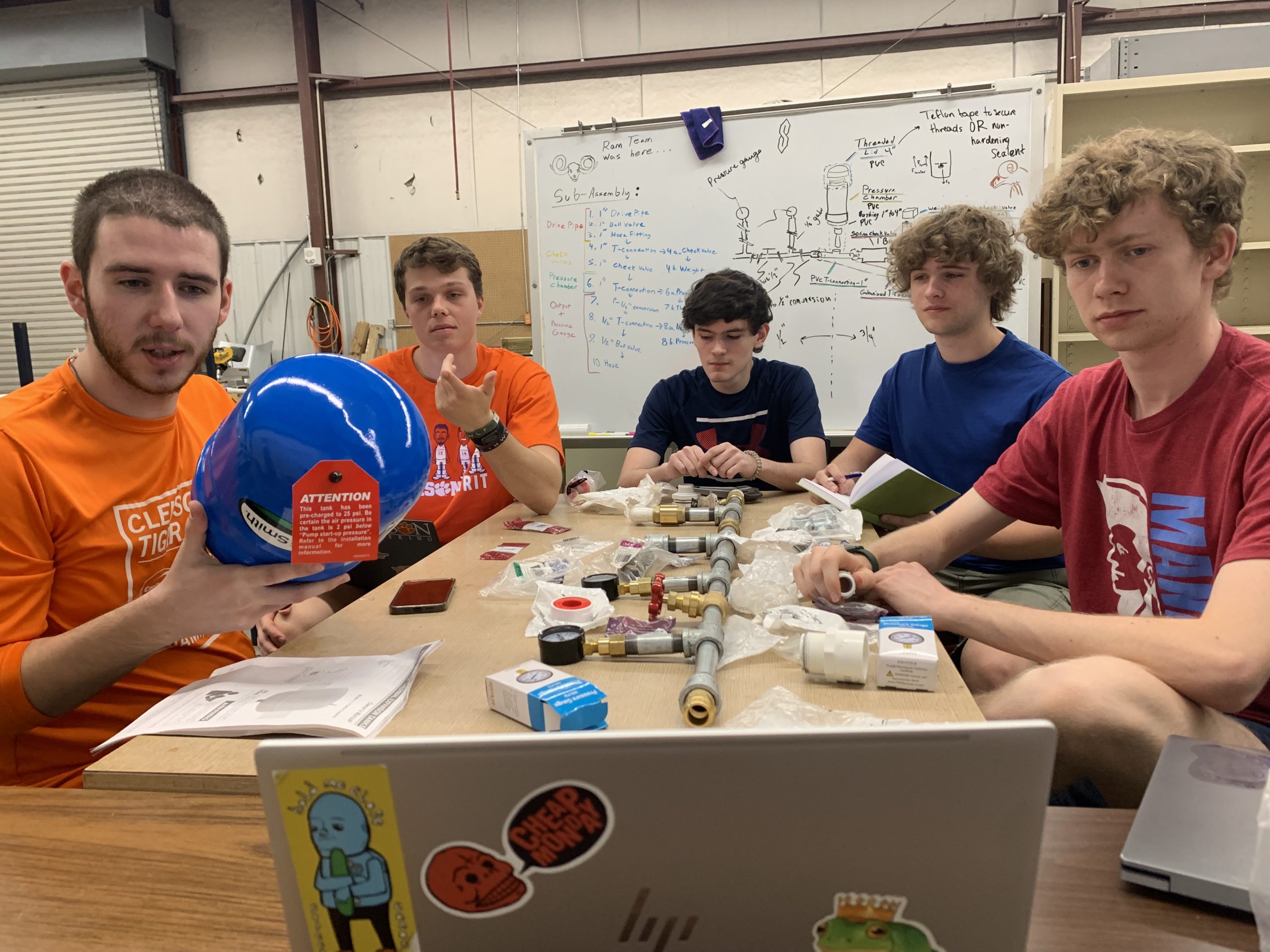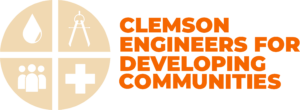
The Humanitarian Engineering Research and Design Studio (HERDS)
152 Hugo Dr. Seneca, SC 29678
About Us
The Humanitarian Engineering Research and Design Studio is a student-led makerspace at Clemson University. The makerspace was developed by Clemson Engineers for Developing Communities and works daily to pursue innovative engineering solutions for resource constrained communities.
Our Mission
The Humanitarian Engineering Research and Design Studio is a student-led maker space developed to use experiential learning in a simulated resource constrained environment to pioneer sustainable engineering solutions for underserved communities.
TRAINING OVERVIEW
The HERDS Equipment Training Certifications introduce students to safety practices and optimal operating procedures for basic hand tools, electric saws, drill presses, and soldering. The modules present material with a combination of video tutorials and verbal instruction. The trainees are assessed with a written quiz and practical to demonstrate their capabilities.
The first level of equipment training completed at HERDS introduces students to the safety practices of the facility. Prior to verbal training, a safety instructional video explains basic first aid practices for possible accident scenarios, including chemical burns, cuts, and fire. HERDS interns provide a tour of the facility with an emphasis on safety equipment, where students can ask questions about what they have learned in the video and where to find equipment. General instructions for how to operate basic battery powered hand tools, like cordless drills, are given on this tour. Students will complete a written exam to certify they are comfortable addressing safety violations and operating basic electric hand tools at HERDS before they are able to do so.
The Blue Certification trains students in the operation of a drill press, miter saw, and a variety of electric saws. Along with tutorial videos, HERDS interns introduce students to all of the available saws and their applications. After a written quiz, trainees will create a part that incorporates the tools and safety practices they have just learned. The practical sharpens decision-making skills and reinforces the common safe operating procedures for fabrication with these tools.
ORANGE CERTIFICATION (LEVEL 3): Basic Hot Work Protocol and Related Tools, and Copper Pipe Soldering
After completion of Blue and Green Certifications, students are eligible to learn about hot work and copper soldering. The principals of soldering are similar across materials, so exposure to copper soldering gives trainees valuable experience if they wish to learn electrical soldering or welding in the future. After a tutorial video, an intern will show students the locations of the materials necessary for pipe fitting and soldering. During the HERDS tour, interns will demonstrate how to properly operate a blowtorch and pipe cutters. Lastly, trainees will take their practical, which involves creating a soldered elbow joint to size specifications while following proper safety protocol.
Current HERDS Projects
Origami Emergency Shelter:
The origami emergency shelter team works on their shelter design prototype. While in PPE, the team has tape on the FRP. The next step is to put the epoxy on the FRP.

Colombia Ram Pump:

Past HERDS Projects
Mycofiltration:
The mission of the Mycofiltration team was to find a low cost solution to water filtration using mushroom mycelium as the media. At HERDS, the team was able to develop a system to test the filtration potential of various configurations of filtration units of mycelium. The units were constructed with modified plastic shelving as the structural basis with mycelium networks grown inside. PVC piping transports water throughout the system.
Concrete Testing:
Hydropower:
The Hydropower team is not consistently at HERDS, but the project has also leveraged the space. The objective is to outline and implement a plan for an electric turbine system to provide consistent power to the Zanmi Lasante medical facilities located in Cange. Over the 2017 spring break trip, the team needed to determine the amount of excess water available from the dam in Bas Cange. To do so, the team created an orifice plate, which restricts flow to a known diameter. From these dimensions and the pressure differences in the system, the flow could be calculated. A router was used to cut the main plate out of plywood and variable plates out of plexiglass, which were then all taken on the commercial flight down to Haiti. The group, in collaboration with an equipment provider, has been able to estimate the size of the hydroelectric turbines using this data.
Water From Air:
The Water From Air team is tasked with determining if it is feasible to produce a significant amount of clean water from water vapor in the air with a low-cost design. One concept involves a medium that absorbs the water vapor from air during cool evenings. When the medium is warmed during the day by the sun, the water vapor will evaporate in the clear container. In the evening, this vapor will condense onto the walls of the container, resulting in liquid water that can be collected. The cycle is repeated daily. A prototype for such a device was constructed and tested at HERDS, made primarily of clear plexiglass, PVC, and wood.
Sand Filter:
The Sand Filter team is investigating the reliability of slow sand filters as a means to inexpensively filter potable water. They have been able to construct and build a prototype using PVC and garbage bins. A proof-of-concept study of their system has been conducted at HERDS, which the team will build on in coming semesters.
Solar Fridge:
The Solar Fridge Project has been one the most active groups at HERDS because of their complicated build. The team aims to harness the power of the sun by concentrating light onto the heating element of a fridge, with the intention of providing a reliable and consistent way of keeping vaccines from spoiling. The prototype involved significant woodworking, mechanical elements, and electronic integration. From handsaws and screwdrivers to miter saws and electric drills, this project has used a variety of the woodworking tools available at HERDS. The prototypes complex electronic integration and coding has been made possible by the wiring and circuit testing equipment along with multiple Arduino and breadboard options. A finished prototype will automatically track the sun and adjust the position of the lens to keep the energy focused in the right area.
Water Analysis:
The goal of the Water Analysis group is to improve data collection of the Cange Water System. Currently, data such as turbidity, pH, and chlorine is collected and recorded by hand. High-end methods of automatically collecting and transmitting data are typically very expensive, so their team is investigating a more cost-effective solution. A variety of inexpensive sensors were mounted to the board shown below. In addition, high end Hach equipment was added to the same system to verify the cheaper sensors’ accuracy. HERDS allowed for the construction and preliminary testing of the solution the team came up with.
